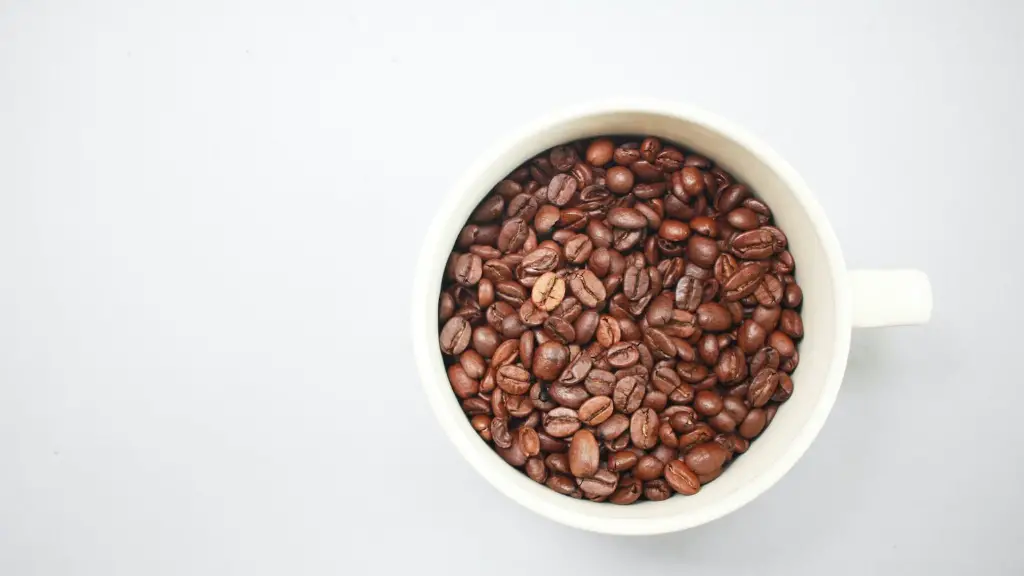What is causing the headaches
Caffeine is a known headache-triggering compound, and coffee usually contains large amounts of it. Caffeine acts on the brain as a stimulant, which activates the sympathetic nervous system, resulting in constriction of blood vessels and a decrease in blood flow to the scalp and likely the brain. This can lead to a headache and can become more frequent if someone is regularly drinking coffee. Moreover, when caffeine is not present, the nervous system is already primed and under pressure. The headaches from the lack of caffeine typically stem from the inability of the body to cope with the sudden decrease in stimulation.
Coping with Withdrawal Symptoms
When a person stops drinking coffee, it is common to experience a range of withdrawal symptoms including headaches. The key to coping with the symptoms is to slowly reduce the amount of coffee consumed over time and not to quit ‘cold turkey’. This will help to minimise the withdrawal symptoms associated with dropping coffee from one’s diet. Additionally, it is important to avoid all other caffeinated products such as tea, energy drinks and soda during the withdrawal period.
Sleep and Hydration
When trying to stop drinking coffee, good sleep and hydration can be helpful in reducing headaches. Sleep helps to reduce stress, relax muscles and create a sense of balance in the body, which can help to reduce the potential for headaches. It is also important to stay hydrated, as dehydration can contribute to headaches and other health issues.
Replacing Coffee with Other Beverages
Replacing coffee with healthy, non-caffeinated beverages can help to reduce the likelihood of headaches. For example, swapping out coffee for herbal teas or warm water with lemon can reduce headaches, as these drinks are caffeine-free and can reduce dehydration. Additionally, drinking enough water can help to flush out toxins from the body and improve overall health, again helping to reduce the likelihood of headaches.
Alternative Remedies
Not all headaches are caused by the withdrawal from caffeine, meaning that alternative remedies can be helpful in reducing them. For example, taking an over-the-counter painkiller such as ibuprofen can help to reduce the pain, as can using a cold or hot compress on the head or neck. Additionally, gentle stretching and yoga can help to relax the muscles, improve circulation, and reduce headaches.
Takeaway Message
Quitting coffee can be a difficult process, but with patience and dedication it is possible to do without experiencing adverse effects such as headaches. Replacing coffee with healthier, non-caffeinated beverages, staying hydrated and using alternative remedies such as painkillers and yoga can help to reduce headaches during the withdrawal period.
Managing Stress
Stress is one of the major causes of headaches and can be exacerbated by quitting coffee. Therefore, it is important to manage stress when trying to stop drinking coffee. Exercise can be an effective way to reduce stress and improve mood. Getting outside and taking regular breaks from work or study can also be beneficial. Additionally, activities such as listening to music, reading, painting or meditating can help to reduce stress levels and reduce the likelihood of headaches.
Diet
Changing one’s diet can also be beneficial when quitting coffee in order to reduce headaches. Eating a balanced diet, rich in fresh fruits, vegetables, lean proteins and healthy fats can help to reduce the likelihood of headaches and improve overall health. Additionally, reducing the intake of processed foods can help to reduce the risk of headaches.
Supplements
Taking natural supplements can also be helpful in reducing headaches and improving overall health. Supplementing with magnesium, omega-3 fatty acids, iron and vitamin D can help to reduce the severity and frequency of headaches. Before taking any supplements, it is important to consult with a healthcare practitioner to determine whether they are right for you and how best to take them.
Exercise
Regular exercise is another important factor when quitting coffee in order to minimise headaches. Exercise can help to reduce stress and improve overall health, which can in turn help to reduce headaches. Additionally, it is important to choose activities that one enjoys, as this will ensure that one is more likely to stick to it.
Practice Mindful Habits
Developing mindful habits can also help to reduce headaches when trying to stop drinking coffee. Taking time to be mindful of one’s thoughts and feelings can help to reduce stress and anxiety and can also help to reduce the likelihood of headaches. Additionally, activities such as journaling and grounding can be helpful in reducing headaches and improving overall wellbeing.
**In conclusion, quitting coffee can be a difficult process, and headaches may be a common side effect.Taking a gradual, mindful approach, by drinking other non-caffeinated beverages, managing stress, exercising, and taking natural supplements, can help reduce the frequency and severity of headaches.**


